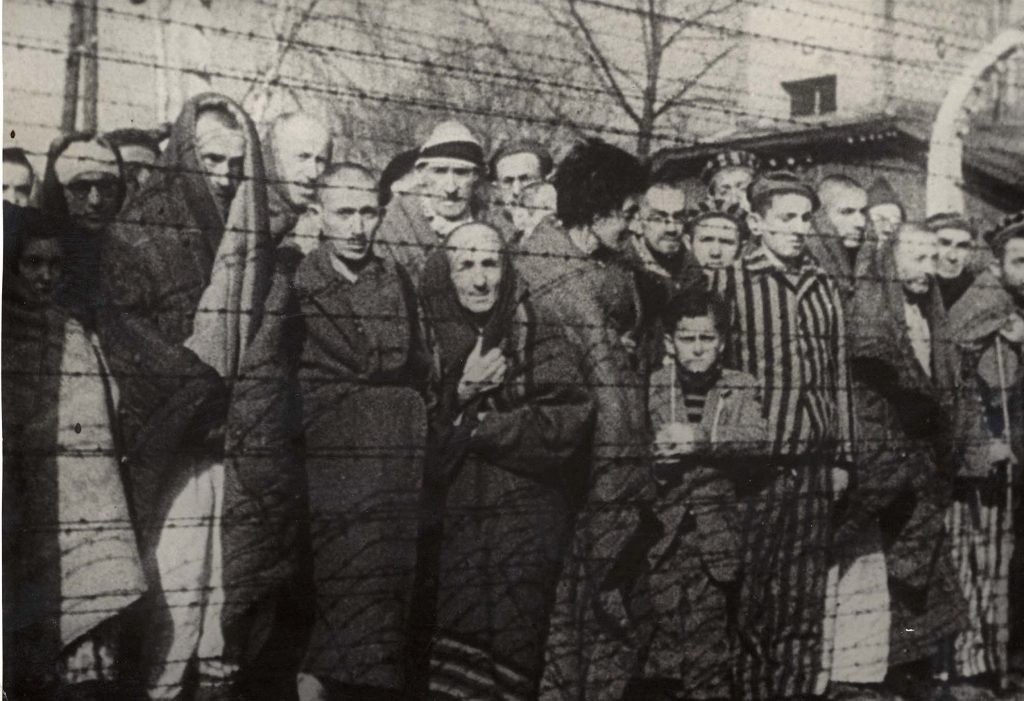Weird things happen in Texas: the Astros cheat in the World Series, the state runs its own power grid that crashes during a rough winter storm leaving millions in the cold and dark, the state has had more Covid deaths than most medium sized countries. The state has created a bounty system to allow Texans – or anyone else – to hunt women who have an abortion, and get paid for it.
Austin, the Texas state capitol, has adopted the slogan: Keep Austin Weird. It works.
Two weeks ago in Southlake, Texas, a suburb of Dallas-Fort Worth, a curriculum director at the local school district told teachers something truly weird. “Just try to remember the concepts of [Texas House Bill] 3979,” the director said. “And make sure that if you have a book on the Holocaust that you have one that has an opposing, that has other perspectives.”
House Bill 3979 is a reference to the legislation passed in Texas – similar to legislation in many other Republican dominated states – that attempts to prescribe how history is taught. The idea is to apparently make certain “controversial” subjects are presented in a “on the one hand and then on the other hand” fashion.

Unless you seek to deny that it happened there is no on the other hand regarding the Holocaust, the planned, systematic effort by Nazi Germany to exterminate European Jews in the 1930’s and 1940’s. The mere idea that there is a both sides to the great crime underscores the absurdity of playing partisan political games with history.
Texas has another law going into effect in December that seeks to outlaw the teaching of critical race theory (CRT), which is not taught in high schools. But no matter. Outlawing CRT has become a talking point on the political right, a way to structure history to deny or eliminate the uncomfortable parts. The Texas political history monitors are very prescriptive about what is acceptable history and what is off limits.
As Boston College historian Heather Cox Richardson recently noted the Texas history standards eliminated any of “Frederick Douglass’s writings, the Fugitive Slave Acts of 1793 and 1850, the Indian Removal Act of 1830 that forced Indigenous Americans off their southeastern lands, and Thomas Jefferson’s letter to the Danbury Baptists defending the separation of church and state. The standards lost ‘historical documents related to the civic accomplishments of marginalized populations’ including documents related to the Chicano movement, women’s suffrage and equal rights, the civil rights movement, Indigenous rights, and the American labor movement.”
What Texas and other conservative states want to teach isn’t really history, but rather scrubbed, sanitized mythology. Or another word for it would be lies.
Understanding the courageous history of the American Revolution, including the Declaration of Independence and the Constitution, is fundamental to the American story. But so is the fact that the Constitution treated millions of Black Americans, held in slavery, as three-fifths of a person, devoid of basic human rights let alone political rights.
Jefferson’s soaring words in the Declaration must be studied and examined but cannot be understood without also grappling with the fact that Jefferson, and many others of the Founding generation, lived contrary to their words. They owned other humans, believing them to be inferior, and were determined to exploit human capital for economic gain.
Americans cannot understand the current raging debate over voting rights without understanding that for millions of American these basic rights were won – or not – in spite of violence, intimidation and systematic efforts to prevent certain Americans from casting a ballot. Congress struggled for years to pass civil rights and voting rights legislation that was resisted at every turn by white politicians who embraced white supremacy.
You cannot fully understand the ongoing debate about efforts to prevent the extinction of Northwest salmon without grappling with the importance of the iconic fish to indigenous Americans, the first Americans whose land was stolen by whites and whose culture continues to be disrespected and marginalized.
This is not comfortable information, but it happens to be true. You can, if you chose, actually study these stories and come away with a deeper appreciation of the long path our country has been on since 1776, or even since 1619. It is a bumpy, often tragic path. But that is what history is. As the conservative writer Michael Gerson said recently, “The discipline of history teaches us to engage with discomforting, distressing ideas without fearing them.’
Here is an example of how history works – and should work – ripped from the headlines. A man many Americans rightly consider an American hero, general and former secretary of state Colin Powell, lived an important and, yes, controversial life.

Powell’s recent death spawned a host of tributes and assessments. The heroic versions featured the classic American story of Powell’s rise to the pinnacles of power as the child of Jamaican immigrants. Powell might have been president. I for one wish he would have run since a Colin Powell presidency might have altered the awful trajectory of the modern Republican Party. That he didn’t run is history.
But there is more to Powell’s story. He carried the water for the fable that weapons of mass destruction required a foolish and tragic military misadventure in Iraq, a war he might well have prevented. Powell was a brave and decorated soldier, but his role in investigating the massacre of as many as 500 civilians at Mai Lai during the Vietnam War is still in some dispute. Powell was by all accounts a strong and principled leader, but he also came out on the short end of many bureaucratic fights that, had they been exposed at the time, might well have altered history.
The point is: Powell’s history and ours is complicated, nuanced. There is no one way to look at Powell’s story – or the American story – the truth is in the sifting, the understanding, the effort to place in context. That is history.
As the great Canadian historian Margaret MacMillan has written: “As they look at the past, historians learn to behave rather like the examining magistrate of the French judicial system. What happened and why? the historian asks. History demands that we treat evidence seriously … history does not produce definitive answers for all time. It is a process.”
Never has it been more important to grapple with the American story, the strengths and weaknesses of our democratic system, and its fragile nature. Truth be told, if we don’t handle our history better and ignore the cranks and mythmakers the last chapter of the American story is going to be written as tragedy.
—–0—–
Additional Reading:
If you are inclined…a few good items:
Facebook’s Historian: Professor Heather Cox Richardson
I know many readers follow the amazing work of HCR, who I quoted in my essay this week. I came across this piece from 2018 with lots of information on the professor’s rise to near cult status as an interpreter of our history.

“On Nov. 21, 2016, two years after publishing her most recent book, a conservative group by the name of Turning Point USA launched a new website called Professor Watchlist, on which it listed close to 200 college professors who it claimed had, ‘…records of targeting students for their viewpoints, forcing students to adopt a certain perspective, and/or abuse or harm students in any way for standing up for their beliefs.’
“Richardson, who was briefly included on the list, was more annoyed than upset—that her hard work was dismissed as leftist propaganda, that her credibility was in-question, and, most of all, that the forum of academic debate was shamed and discouraged from its pursuit of truth.”
Here is a link to the piece that appeared in the Boston College magazine.
Is Trump running in 2024? The Claremont Institute hopes so
Regular readers know I’m a fan of The Bulwark, a news and opinion site founded by conservative Charlie Sykes and some other refugees from the modern conservative movement.
Charlie has a great daily newsletter, a podcast and contributes to MSNBC, among other outlets. He is always worth reading. A recent piece on the transformation of the Claremont Institute caught my attention.
“Once one of the most prestigious bastions of conservative thought, Claremont now spends its time putting lipstick on the Trumpian wildebeest.
“Trumpism is, of course, less an idea or set of principles than it is a cult of personality and series of angry impulses. But even the ugliest movements have their pseudo-philosophers and their rationalizers.
“And this where Claremont comes in: It is attempting to put a veneer of intellectual respectability on some of the darkest impulses of the right. It’s not at all surprising that Claremont was at the center of the attempt to overthrow the 2020 election.”
Charlie Sykes on Claremont. Wow.
Writing from Home: Lessons from a Novelist-Slash-Small-Town Newspaper Columnist
I love this piece from the novelist Nickolas Butler on writing as an act of service and the power of local news.
“When my wife and I moved our family back to our hometown after fifteen years away, one of the first things we did was subscribe to the Eau Claire Leader-Telegram. And when the delivery-driver pounded a heavy steel stake beside our mailbox and hung an orange newspaper-box along our rural road, I felt a sense of community, yes. I was buying into something that didn’t necessarily make sense, but that was surely bigger than me, or my family. This was another kind of stake—an investment—in local journalism, in local journalists, in our place.”
Pretty good take on the importance of small-town journalism.
Thanks, as always, for following along. All the best.
